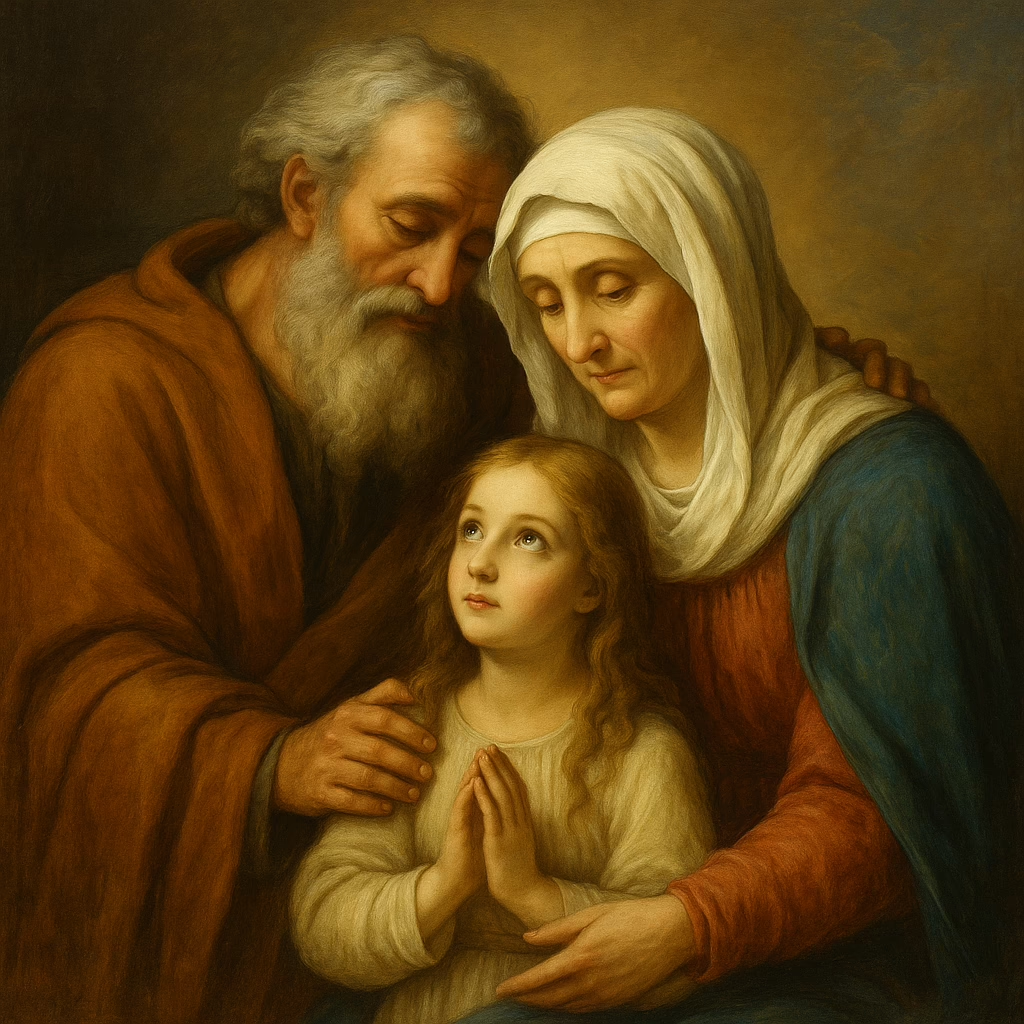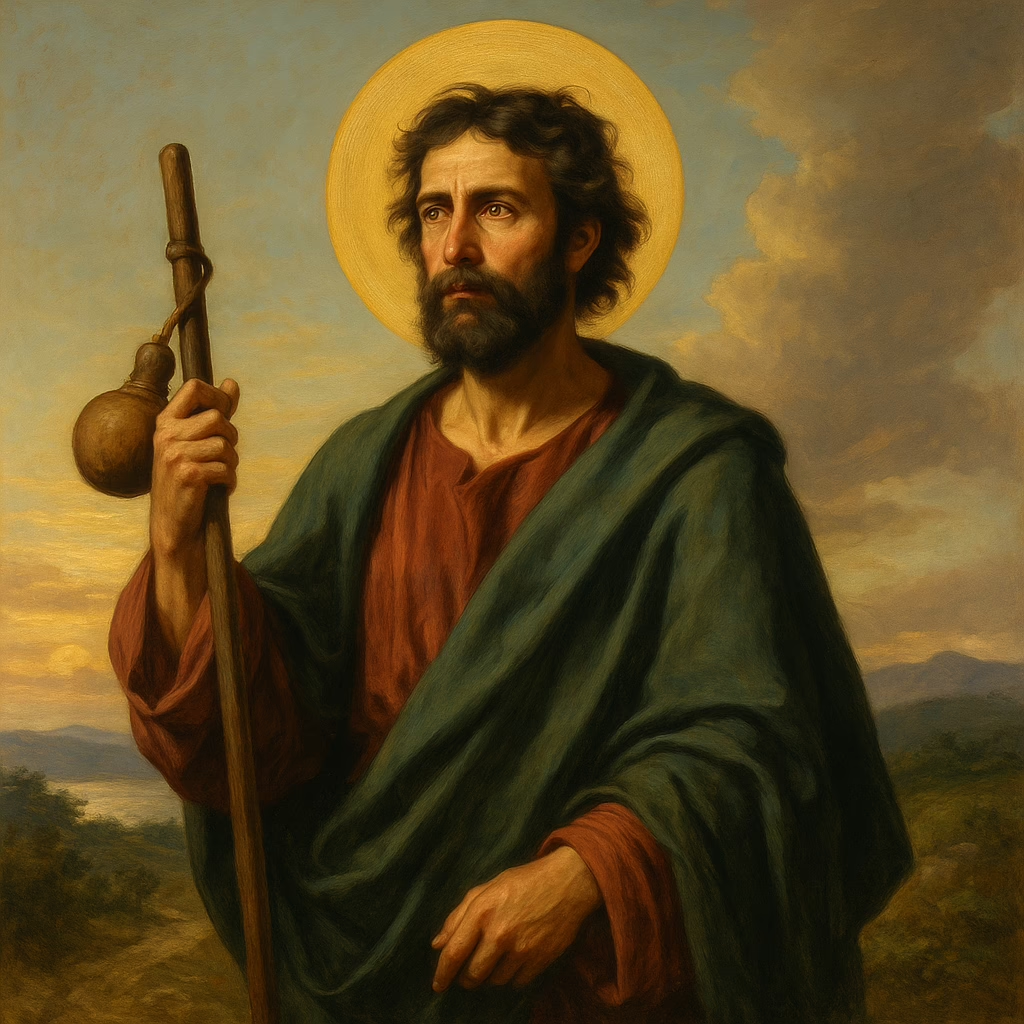Embracing Education and Empowerment: The Life of St. Marie Eugenie of Jesus
Introduction: A Beacon of Faith and Education
"Do not estimate a man by what he does not have, but by what he does with what he has." This profound quote from St. Marie Eugenie of Jesus illuminates the mission and vision that guided her life's work. A trailblazer in the realm of Catholic education, her legacy as a fervent advocate for women's education continues to influence the Catholic Church today. Through her conversion, educational endeavors, and unyielding commitment to social justice, St. Marie Eugenie’s life serves as a powerful testament to the transformative power of faith and service. In this blog post, we will delve into the rich tapestry of her life, exploring her spiritual awakening, foundational work in education, teachings on social welfare, and enduring legacy.
1. Early Life and Spiritual Awakening
1.1 Childhood in Privilege Yet Spiritual Barrenness
Born into affluence on August 25, 1817, in Metz, France, Anne Eugenie Milleret, known today as St. Marie Eugenie of Jesus, grew up enveloped in material comfort. Yet, her early environment was a paradox—despite the wealth, it lacked spiritual warmth, reflecting a common plight of many privileged circles at the time. This spiritual barrenness set the stage for a profound transformation.
The turning point came when she attended the Good Friday services at Notre Dame Cathedral. As Father Lacordaire's resonant sermons filled the sacred space, the young Marie Eugenie felt an irresistible pull toward a deeper faith. At just 15, she experienced a spiritual rebirth, finding solace and purpose in God’s plan. This conversion was seminal, marking the beginning of her profound journey toward founding a congregation devoted to educational reform.
1.2 Influential Mentors and Friends
The journey of faith is often walked in the company of wise souls, and for Marie Eugenie, these companions included Father Combalot, Sister Therese Emmanuel, and Father d'Alzon. These influential mentors recognized her potential and nurtured her spiritual inclinations, guiding her toward a mission that would leave an indelible mark on society. They imparted the essential belief that "none of us lives for oneself" (Romans 14:7), emphasizing the role of mentorship in sparking spiritual and personal growth.
2. Founding the Religious of the Assumption
2.1 A Bold Vision for Women’s Education
Guided by a vision that transcended societal norms, St. Marie Eugenie founded the Religious of the Assumption in 1839. Her congregation embodied a revolutionary purpose: to empower young women through education. At a time when societal norms relegated women to the periphery, her commitment to cultivating intellectual and spiritual growth among women stood as a radical countercultural statement.
Key to this mission was her belief that educating a woman equated to educating a family and, eventually, reshaping society itself. In the face of considerable challenges and resistance, she courageously envisioned a future where women could access education regardless of their social status. Her work spurred a movement that influenced future generations, emphasizing education as a cornerstone of social change.
2.2 Empowerment through Education
St. Marie Eugenie's educational initiatives created transformative opportunities for marginalized women. Schools and programs inspired by her vision sprang up across Europe, serving as beacons of empowerment. Among these institutions is the Assumption College in Worcester, Massachusetts, a living testament to her commitment to holistic education.
These initiatives provided young women with the tools to transcend societal limitations, enabling them to envision and create lives beyond the confines of domestic roles. By advancing education, Marie Eugenie harnessed the true power of learning as a catalyst for both personal and communal transformation.
3. Teachings and Philosophy
3.1 Key Tenets of St. Marie Eugenie’s Teachings
A synthesis of profound faith and actionable charity characterizes St. Marie Eugenie’s teachings. Her philosophy emphasized the interconnectedness of creation and the pivotal role education plays in God's grand design. Rooted in the Gospel, she preached that charity and social justice are not mere acts but integral components of a faithful life.
She urged her followers to embody global solidarity and mutual responsibility, teaching that living in harmony with creation requires extending love and support to all, especially the marginalized. Her belief resonated with the Vatican II declaration: "It is one and the same love that leads to God and to our neighbor" (Gaudium et Spes, 24).
3.2 Living Out Her Teachings Today
Marie Eugenie's philosophies remain remarkably relevant in addressing contemporary issues in education and social justice. Today, her teachings call us to rectify societal inequities through service and understanding. As we navigate modern challenges, her belief in fostering a community of education and support offers a powerful framework for action.
Encouragement abounds for institutions and individuals to embrace her ideals, actively implementing them in educational and social environments. Such efforts can illuminate pathways for real change and echo her call for "creating a civilization of love" (Paul VI, Address to Educators). [Catholic Social Teachings]
4. Legacy and Canonization
4.1 Recognition and Beatification
St. Marie Eugenie's remarkable journey of faith led to her beatification by Pope Paul VI in 1975 and eventual canonization by Pope Benedict XVI in 2007. These acknowledgments not only marked her sanctity but also underscored the profound importance of education and women's empowerment within the Church. Her canonization serves as a reminder of her enduring influence, reinforcing her role as a patron for educators and women worldwide.
4.2 Continuing Influence on Education and Service
The legacy of St. Marie Eugenie continues to flourish in numerous institutions dedicated to her mission. Schools such as the Assumption High Schools worldwide and various educational initiatives perpetuate her commitment to serving communities through learning and empowerment. Even today, her ethos inspires programs that balance educational excellence with a deep commitment to social justice. [Recent Devotions to St. Marie Eugenie]
5. Practical Devotions and Reflections
5.1 Daily Practices Inspired by St. Marie Eugenie
In the spirit of St. Marie Eugenie, daily practices and reflections can deepen one's spiritual journey. Begin each day with prayer and consider her teachings on interconnectedness and service. Engage in Marian devotions and the Rosary to foster a closer connection with both Christ and the Blessed Virgin Mary.
These spiritual reflections, rooted in faith and action, guide believers to embody her message: "Seek not the greatness that is passing, but the majesty of God's love." Emulating her life offers spiritual nourishment and purpose, aligning daily actions with divine providence.
5.2 Opportunities for Community Engagement
Honoring Marie Eugenie's legacy invites us to engage in educational and social justice initiatives. Whether volunteering at a local school, advocating for equality, or participating in community outreach programs, the opportunities are numerous. Each step promotes her mission of holistic empowerment, echoing her sentiment that "faith without works is dead" (James 2:26).
Conclusion: A Call to Action
The life of St. Marie Eugenie of Jesus stands as an enduring beacon of faith, education, and empowerment. Her journey from spiritual awakening to establishing the Religious of the Assumption reflects a life committed to transformative action. Her compelling message continues to inspire, calling us to sustain her legacy by championing education and social justice.
May her story inspire modern-day actions rooted in justice and compassion. Her life reminds us to cherish each person's potential, echoing the divine call to love and educate. Pursue further depth by exploring more on her teachings and their relevance today.





